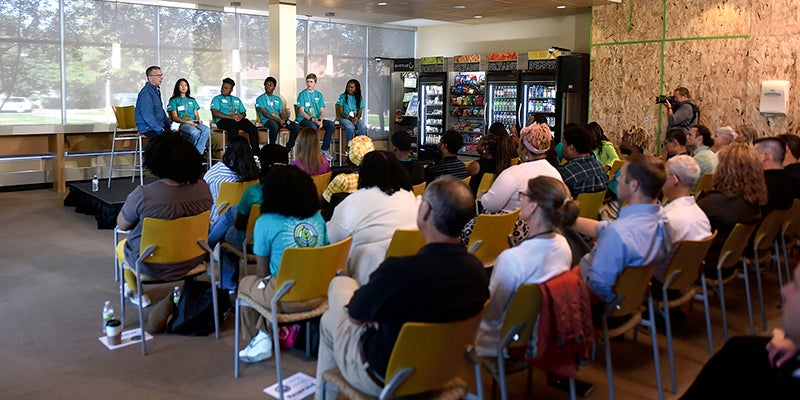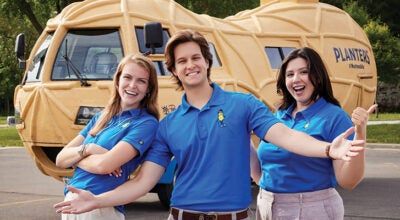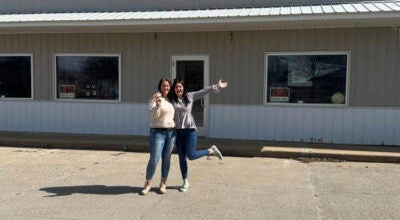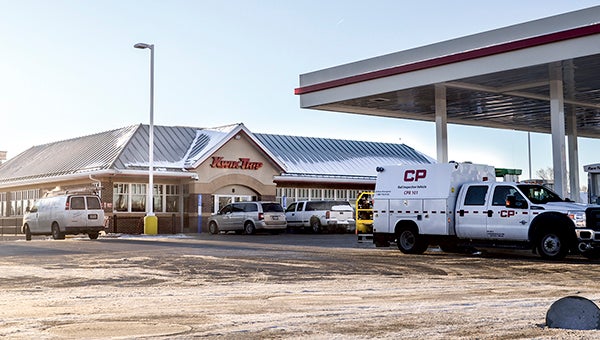After long debate, Plunkett gets permit
Published 11:10 am Tuesday, November 6, 2012

Local lawyer Peter Plunkett received permission to open his home, designed by famed architect Frank Lloyd Wright, as a bed and breakfast. -- Herald file photo
To some of his neighbors’ dismay, Peter Plunkett got the green light Monday night to use part of his house as a bed and breakfast.
After a contentious, hour-long public hearing at an Austin City Council meeting teetered in either side’s favor and at one point threatened to shut Plunkett’s request down, the City Council voted 4-3 to grant the conditional use permit allowing his residentially-zoned home to be used as a bed and breakfast. Voting against the measure were council members Roger Boughton, Marian Clennon and Judy Enright.
Council Member Janet Anderson at first voted against the permit in a 4-3 vote that denied Plunkett the permit because she hoped to add the requirement to put fencing around the property. When the idea proved not feasible within the limits of the permit, she made a motion to return to the original resolution and take a second vote on it. That time, she voted in favor of the permit, and it passed 4-3.
Plunkett said the Frank Lloyd Wright-designed house at 309 21st St. SW would draw tourism to Austin and allow the architect’s fans to experience his work.
“It’s a low-key type of thing, but it’s really a great deal for Austin to have a famous architect on display,” Plunkett said in a memo to the city, calling his home “one of the hallmarks of Frank Lloyd Wright.”
Council Member Brian McAlister reminded the council the outcome needed to be based solely on the qualifications of the conditional use permit.
“The fact that this is a Frank Lloyd Wright home is totally irrelevant,” he said.
Council Member Steve King agreed and tried to draw the line between neighbors’ feelings and the evidence.
“It seems like these tough cases are always mixed with some level of emotion,” he said. “[Emotions] need to be separated from the facts.”
“This seems to be a reasonable use,” he added.
About 30 neighbors signed a letter speaking out against the bed and breakfast, describing the move as damaging to their property value and the peaceful nature of the neighborhood. About 10 people at the hearing identified themselves as opposing the permit, while others spoke in favor of it.
Plunkett’s neighbor, Jan Gravelle, said she was dubious of the benefits he mentioned.
“I disagree that this particular request will measurably increase tourism in Austin,” Gravelle said. People living in the area are worried that having a bed and breakfast in the area would hamper their chances of some day selling their homes, she added.
Carter Wagner backed Plunkett, saying he has known him a long time, and had visited the house himself.
The Austin Convention and Visitor’s Bureau wrote a letter of support on Plunkett’s behalf on Oct. 9, noting it was good for tourism, and several of Plunkett’s neighbor’s have also moved to support him.
On the other hand, another neighbor, Eric Anderson, said his home was very close to Plunkett’s and he was worried about strangers it would bring to the neighborhood. He has young children, and worries he will not be able to tell whether those at the house were invited guests or not.
Patricia Dahl said she was worried about the possibility of Plunkett accepting the conditions of the permit now, but going against them later on.
“None of you would want this,” she told the council, adding the hearing weighed the welfare of the neighborhood versus the income from a bed and breakfast.
Enright sympathized.
“I’d like to preserve our residential homes,” she said.
Boughton agreed, saying he did not see enough benefit from the permit to justify it.
Plunkett disagreed with the petitioners who signed against him, saying the letter incorrectly said he wanted a zoning change, not a conditional use permit. About 18 of the people who signed told him they did not oppose his permit when he spoke to them in person, according to Plunkett.
Plunkett plans to keep the bed and breakfast low-key, with no parties or special events, and he won’t sell food or liquor. He also mentioned the term “guest house” might better fit the use, since he had no intentions of serving or selling food. Plunkett will still live there, but about 1/3 of 4,000-square-foot home will be divided off to accommodate two people, with an overflow room for a third person.
Other business
During the meeting, the council also decided to:
—grant the Planning and Zoning Department the power to contract to remove junk and illegally stored vehicles from four Austin properties: 1008 Oakland Ave. W, 1007 Fifth Ave. NE, 1005 Eighth Ave. NE, 1005 Fifth Ave. NE.
—allow the Austin Area Chamber of Commerce to use Main Street from Fourth to First avenues and the city’s portable stage for its Christmas in the City kickoff Nov. 23.
—allow Sterling State Bank to block off the west end of First Avenue Southwest in front of the bank from 3 to 8 p.m. Nov. 29 for wagon rides as part of Christmas in the Southwest.
—set two public hearings for the Nov. 19 council meeting: one for the rezoning of a property in the 200 block of 14th Street Northwest, and another for preliminary plat approval for the replatting of Dobbins Creek Estates.
—approve a plat known as The Wunderlich Addition for a new upcoming city animal shelter.





